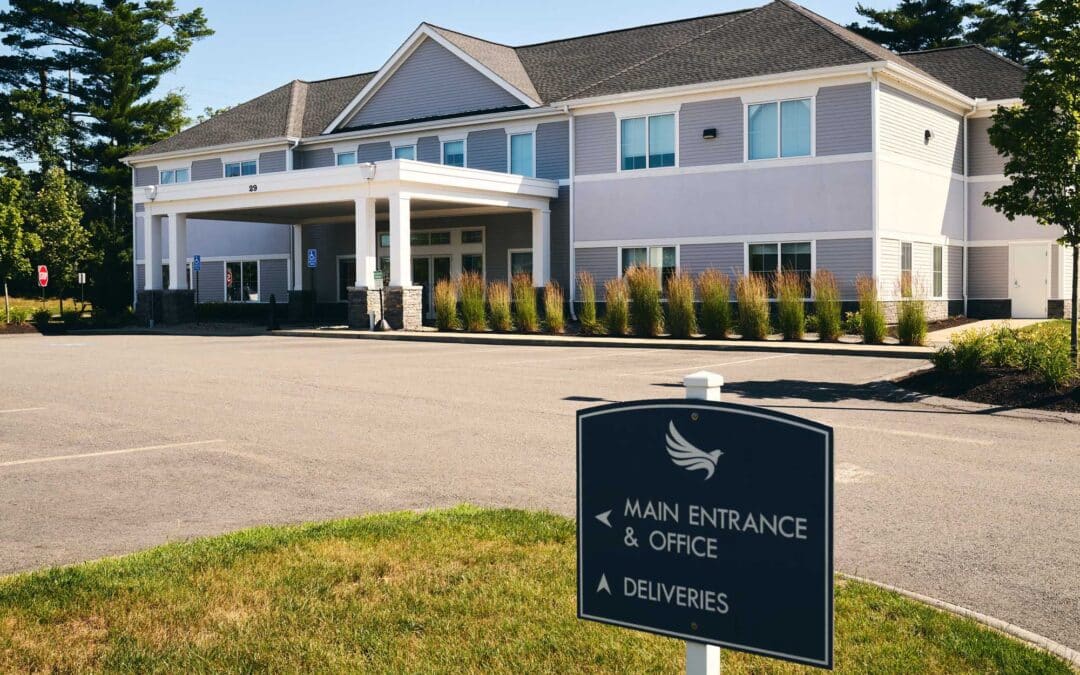Opioid effects on the brain are well-known today, as are how addicting these drugs can be. Despite this, millions of people continue to abuse opioids every day. The calming and euphoric effects opioids produce are very addicting, and people with depression or other mental health disorders can quickly develop an addiction if they are not careful. Finding an opioid addiction treatment program in New Hampshire is imperative if you or a loved one is abusing opioids and at risk of overdose and death.
At Liberty Health Services, our opioid addiction treatment uses the latest techniques for treating an addiction to opioids, alcohol, heroin, and other addictive substances. Our team of behavioral therapists and medical staff work together to create an effective treatment program that combines behavioral therapy with medication to minimize withdrawals and other disruptive symptoms. Clients will work with a therapist in group and private therapy sessions during residential and outpatient treatment programs. For more information about our opioid addiction treatment program in New Hampshire, call 855.959.4521 today to schedule a tour and meet with our compassionate team.
Understanding Opioid Effects on the Brain
Understanding how the brain and opioids interact can help you see how dangerous these drugs can be when abused. Opioids interact with the mu-opioid receptors in your body that regulate dopamine release. This neurotransmitter is responsible for feeling pleasure, muscle movement and coordination, and memory retention. Even small doses of opioids cause a massive release of dopamine and induce a euphoric and calming effect that is very addicting. In some cases, addiction can happen within a few days.
Opioids and the Brain
Addiction and dependence on drugs and alcohol happen due to chemical changes within the brain caused by the abuse of opioids or other narcotics. When you take opioids for an extended period of time, your brain begins to normalize having opioids in the system and forms a dependence on them to function normally. When you stop taking opioids, you disrupt the new chemical balance and begin going into withdrawals. Opioid withdrawal symptoms can include:
- Muscle aches
- Restlessness
- Stomach cramps
- Nausea and vomiting
- Rapid heart rate
- High blood pressure
At Liberty Health Services, we offer opioid treatment in New Hampshire for individuals who are struggling with opioid abuse and need support through their withdrawals. Our residential and outpatient treatment programs can aid in your recovery, no matter how severe your symptoms are.
Finding Opioid Treatment in New Hampshire
When searching for an opioid addiction treatment program, choose a facility that offers a full range of treatment programs for every stage of addiction. That way, you don’t have to find a new therapist to continue therapy after completing detox or a residential treatment program.
When choosing opioid treatment in New Hampshire, look for the following types of programs:
- Addiction education – To understand the relationship between opioids and the brain, addiction recovery includes educating you about the dangers of abuse and how opioids can lead to permanent brain damage.
- Behavioral therapy – Behavioral therapy programs such as cognitive-behavioral therapy and dialectical behavior therapy are some of the most effective programs in treating addiction and other types of mental health disorders.
- Medication-assisted treatment – With medical support, individuals will get relief from their withdrawals and cravings, as well as any depressive or anxiety symptoms that are fueling the addiction. Medical staff will administer medications and monitor you for any adverse reactions throughout the program.
- Group and individual therapy – Therapists will work with you in group and individual therapy for a more complete recovery experience. You will develop and practice coping and communication skills and give and receive feedback from your peers during group discussions.
- Inpatient and outpatient programs – Most people will begin recovery through inpatient or residential treatment programs that include medical detox and behavioral therapy. Once completing residential treatment, you will continue therapy through outpatient programs until you are confident in maintaining your sobriety.
Enrolling in opioid addiction treatment will help you understand how the brain and opioids interact, so you can see how easy it is for an addiction to develop. If you or a loved one is taking opioids to treat pain, learn all you can about opioid effects on the brain to reduce the risk of addiction.
Liberty Health Services: An Opioid Addiction Treatment Program in New Hampshire
At Liberty Health Services, we support men and women throughout New Hampshire who are struggling with an addiction to opioids, heroin, alcohol, or other substances. We will teach you about the devastating effects of opioids and how they can cause brain damage, respiratory distress, coma, and death. To discover how we can help with your addiction recovery, call 855.959.4521 or fill out our online contact form today to learn more about our opioid addiction treatment facility.


